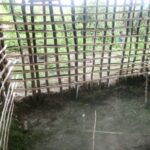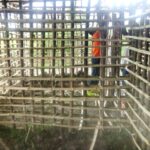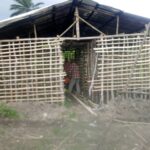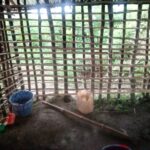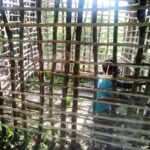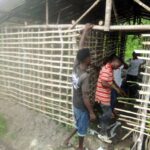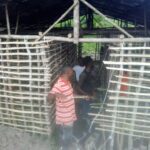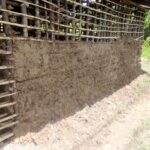Liberia: Entrepreneurial Development through pig husbandry.
The Impossible Fund, a remarkable initiative committed to uplifting communities in Liberia, is taking a bold step forward with a new entrepreneurial project aimed at self-sustainability. This latest endeavor focuses on setting up a small-scale pig farm, a venture that holds promise for economic empowerment and lasting impact for local communities. With four female pigs and one boar, the project’s goal is to establish a thriving micro-farm that not only contributes to local food production but also creates economic opportunities by helping others start their own small-scale pig farms.
Laying the Foundation for Sustainable Livelihoods
Agriculture and animal husbandry are integral to Liberia’s rural economy, but for many, the resources needed to establish such ventures are out of reach. Recognizing this challenge, The Impossible Fund’s pig farming project aims to empower local families with the training, resources, and initial stock they need to launch and sustain their own farms.
With just five pigs to start—a boar and four sows—this project has the potential to generate substantial economic and social benefits. Each sow will have the capacity to produce piglets, which, once full-grown, can be sold for slaughter. This system not only generates immediate income from piglet sales but also creates a cycle of reinvestment, with the potential for additional micro-farms branching out from this initial setup. It’s a model designed for scalability, with each farm creating new opportunities for future generations.
Economic Impact and Community Empowerment
The immediate benefit of this project is straightforward: sales from the piglets provide families with income, enabling them to improve their living conditions and provide for their basic needs. But the impact reaches beyond financial stability. By investing in animal husbandry skills, families gain a new livelihood that is resilient and sustainable, fostering an environment where economic independence and growth can thrive.
Each small-scale pig farm can serve as a model, inspiring others in the community to explore similar ventures. The Impossible Fund’s broader vision is to create a network of micro-entrepreneurs, each one contributing to a growing, sustainable local economy. This approach not only generates income but also strengthens community bonds as knowledge, resources, and experiences are shared.
Building a Future of Self-Reliance and Stability
In Liberia, where access to resources and economic opportunities can be limited, this project represents a lifeline for self-reliance and stability. The Impossible Fund’s pig farm project will initially provide families with the tools and training to care for and manage their livestock. Alongside practical skills, participants learn about essential business practices such as budgeting, reinvestment, and planning for future growth.
With time and success, The Impossible Fund envisions this project as a springboard for other ventures, from vegetable gardens and poultry farms to expanded livestock operations. This diversification is key to building a resilient local economy, one that can weather the ups and downs of markets and improve the quality of life for countless families.
Supporting Change, One Piglet at a Time
At its heart, The Impossible Fund’s pig farming project in Liberia is about empowering people. By planting the seeds of self-sustaining agriculture and micro-entrepreneurship, this initiative seeks to create lasting change in local communities. The impact of each piglet sold, each family supported, and each small farm established is a step closer to a future where Liberians are empowered to build a brighter tomorrow on their own terms.
As The Impossible Fund continues its mission to support and uplift communities, this pig farming project stands as a testament to the power of small beginnings—and the remarkable transformations that can result.
DONATING TO THE IMPOSSIBLE FUND TRANSFORMS LIVES IN LIBERIA
